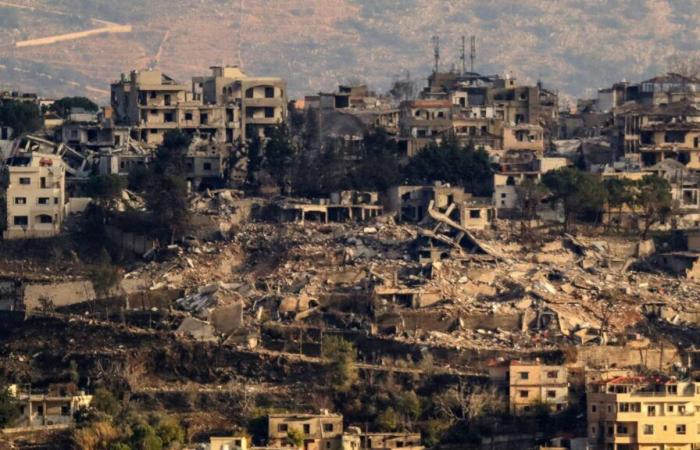The Israeli army is still present in a large area on the southern border of Lebanon, to the great dismay of civilians who are prohibited from returning to their homes despite the truce.
A country still at war. Nearly a week after the ceasefire came into effect, Hezbollah and the Israeli army continue to clash in the south of the country, each accusing the other of breaking the truce agreement.
The Israeli army, which has pledged to leave Lebanon within 60 days, still occupies a large strip of land 10 km wide on the country’s southern border. Residents driven out by the fighting are, for the moment, prohibited from returning to their homes.
“Anyone who moves south of this line is exposed to danger,” the Arabic-speaking IDF spokesperson warns on X.
“Terrorist targets”
Rabih Atwi, a Lebanese interviewed by BFMTV, tried to return to his village of Naqoura at the start of the truce. But he was quickly dissuaded. “The snipers fired at us to scare us into leaving the village. My feeling is that we are still living under occupation,” he confides.
Southern Lebanon is still an extremely dangerous area. This Monday, at least nine people lost their lives in shots fired by the Israeli army which it said was targeting “terrorist targets”.
“They are taking advantage of the peace to take what they failed to take during the war,” accused Salman Harb, spokesperson for Hezbollah, after these strikes.
[Allô Washington] – What role did the United States play in the ceasefire in Lebanon?
A truce violated “54 times”
The United States, Israel’s main ally, affirmed that the truce in force since November 27 held and that it was examining the accusations of both camps. “The ceasefire holds,” State Department spokesman Matthew Miller said.
Previously, the Speaker of the Lebanese Parliament, Nabih Berri, an ally of Hezbollah and who negotiated the truce on its behalf, had affirmed that Israel had violated the ceasefire “at least 54 times”.
Nabih Berri called on the committee responsible for overseeing the truce, which includes the United States and France, “to urgently begin its action and force Israel to stop its violations and withdraw” from Lebanese territory.
The head of French diplomacy, Jean-Noël Barrot, for his part insisted on Monday with his Israeli counterpart, Gideon Saar, on “the need for all parties to respect the ceasefire”, his ministry indicated.
The Israeli minister rejected any accusation of violating the ceasefire. “On the contrary, Israel is enforcing it” in response “to Hezbollah’s violations which call for immediate action,” he said.
Israel retains “complete freedom of action”
The ceasefire agreement, which ended two months of open war between Israel and Hezbollah, provides for the withdrawal within 60 days of the Israeli army from Lebanon. Israeli soldiers entered the south on September 30, a week after launching a massive aerial bombardment campaign against Hezbollah.
Hezbollah, for its part, must retreat north of the Litani River, around 30 kilometers from the border, and dismantle its military infrastructure in southern Lebanon.
As soon as the agreement was announced, Israel said it reserved “total freedom of military action” in Lebanon, if Hezbollah “violated” the ceasefire and “attempted to rearm”.






